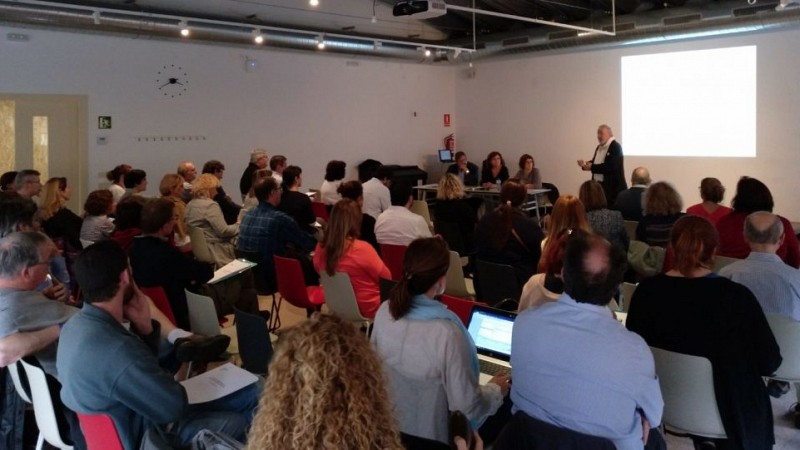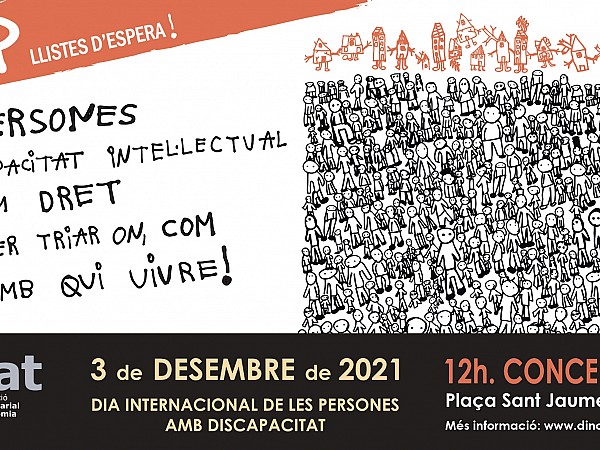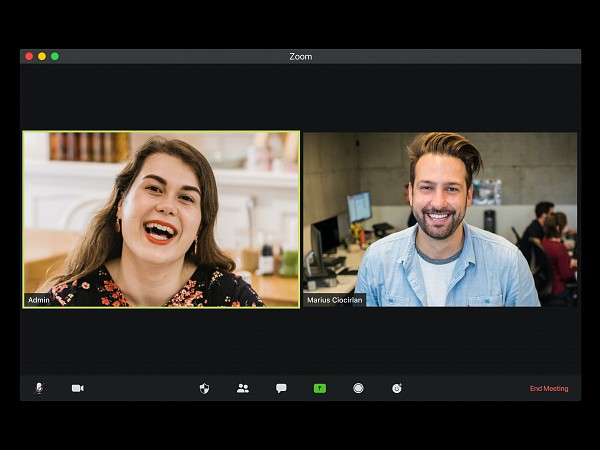The AEES-Dincat Board of Directors presented last May 9th at the Pere Quart Civic Center in Les Corts (Barcelona), its strategy to promote concerted action as a form of relationship between the competent public administrations in the field of public services 'attention to people with intellectual disabilities.
The event, attended by about sixty people representing the partner entities of Dincat, was attended by Pepita Perich, manager of the FRN Group and member of the board of directors and responsible for the vocation of social action of DINCAT , Assumpta Fortuny, Manager of Allem and member of the social action commission and in Francesc José María as a lawyer expert in administrative law that advises the Dincat in this matter.
This alternative modality of service management is protected by European legislation that gives the Member States freedom to regulate extra-contractual mechanisms to link public administrations with private entities with a non-profit social initiative for the provision of services to People (social, health and education) that are considered services of general interest.
The Spanish legislation, following the European one, allows an ad hoc legal regime for the provision of these services and transfers the responsibility of its regulation to the legislators of the Autonomous Communities that have transferred their management, is the so-called concerted social action .
In Catalonia, like many other Autonomous Communities, it has been legislated in an unsatisfactory way in the opinion of Dincat, since it only awards a priority to nonprofit private entities compared to commercial companies when there are similar quality conditions, contrary to what has been legislated by the Most of the Autonomous Communities that have made express reservation of this non-contractual instrument for those non-profit social initiative entities.
The commitment of the Board of Directors of Dincat was in favor of the Catalan legislator rectifying and establishing the exclusivity of the concerted action for companies of non-profit social initiative. This change of paradigm would mean repealing the Third Additional Provision of Decree Law 3/2016 and passing a new law into the Parliament of Catalonia establishing the express reservation that is intended.
Dincat goes further in its approach and postulates that the provision of care services for people with disabilities to the entities it represents, for historical reasons and for the development of the sector, is also reserved for the assistance model focused on the person who defends And for the overwhelming current reality: only 1ཛྷ% of the services of attention to intellectual disability are managed by the so-called mercantile initiative.



